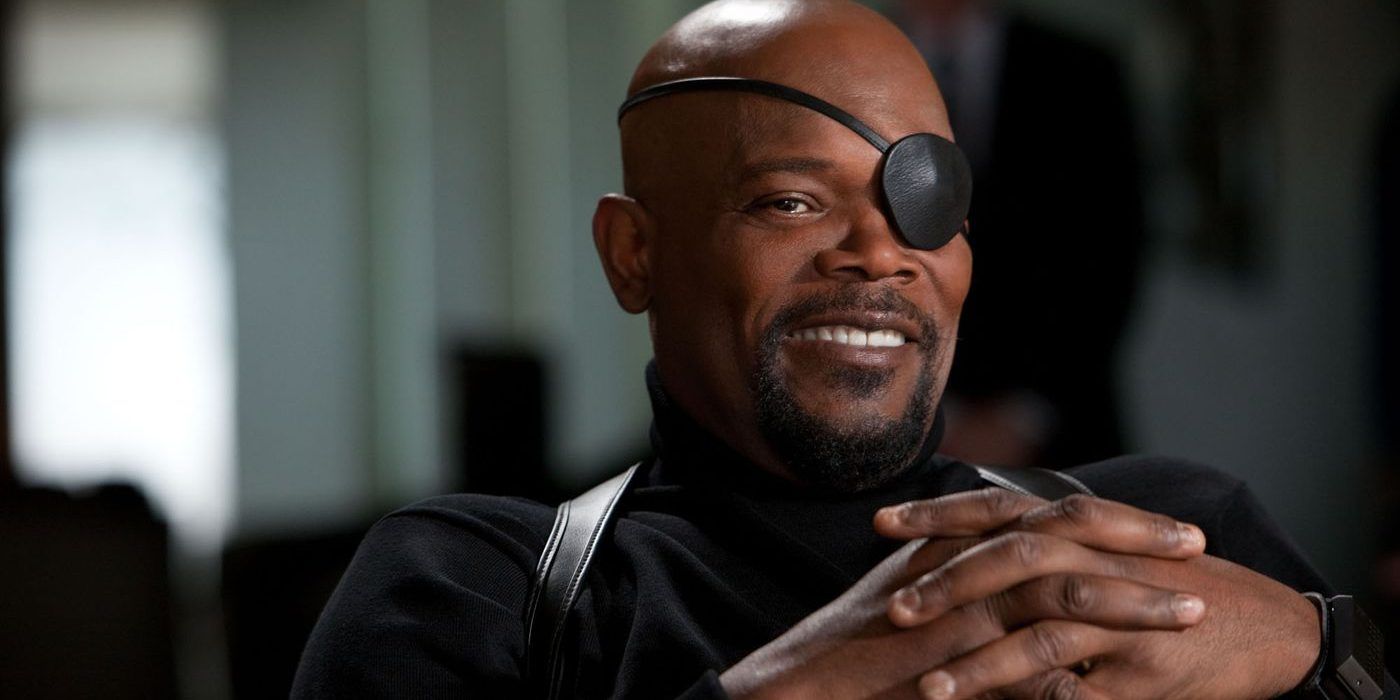Marvel Studios' Black Panther has been breaking records since its release in February, with the film most recently taking over Titanic's spot as the third-highest grossing film stateside. Yet, despite the film's mega-success, Nick Fury actor Samuel L. Jackson isn't convinced it'll bring about much change to how Hollywood tells black stories.
There's no denying that Black Panther was a box office phenomenon, or that it marked a huge step forward for diversity in big-budget Hollywood features going forward. After all, the film has amassed over $1 billion at the worldwide box office since February and has given director Ryan Coogler the biggest opening ever for an African American director. So, it isn't surprising to think that many hoped Black Panther's success would make for a change in how Hollywood opts to tell black stories going forward, unfortunately, Jackson doesn't seem all too hopeful. In a cover story by Matt Pomroy, Jackson explained why Black Panther isn't as big of a watershed moment as many believe it to be.
RELATED: Black Panther to Open in Saudi Arabia, Ending 35-Year Theater Ban
While speaking with the outlet, Jackson talked about the need for change in Hollywood and the inspiring young voices that are continuing to tell all different types of stories. And while the actor remains hopeful for the future of the industry, he doesn't believe Black Panther is as much of a watershed moment as it's being made out to be and for a very simple reason: it's an action-adventure film, and those are a much easier sell.
“I’m not positive that Black Panther is going to change the dynamic of black stories being told in Hollywood and being accepted all over the world,” he says. “It’s an action-adventure story and a lot of people like those, and they’ll work all over the world forever because everybody loves a hero. But not everybody loves a drama about somebody’s life experience – that’s why awards have a separate category for foreign films; they are perceived as being different. Once we stop perceiving them as different and just see them as good films and they get recognized in the same category, we’ll be laying markers.”
While Black Panther is still very much a rarity in that it features a predominantly black cast in a film that features just as much black talent behind the camera, as Jackson notes, it's still very much an action-adventure story. That helps to make it an easier sell across the world, whereas a smaller foreign drama isn't as easy a sell because they are often treated differently by audiences.
And while Jackson admittedly does have a point, there's no denying Black Panther is still a (very small) stepping stone towards a more diverse Hollywood. In fact, after seeing the response to the Dora Milaje in Black Panther, Sony joined forces with a Nigerian network to produce a television series about the 19th-century Dahomey Warriors, the inspiration for the Dora Milaje. Additionally, Viola Davis and Lupita Nyong’o have announced they'll be working together on a film called The Woman King which will tell the story of an all-female military unit known as the Amazons. These are stories that wouldn't have been told prior to the success of Black Panther, and are, hopefully, only the beginning of what's to come.
RELATED: Marvel Is ‘Absolutely’ Making a Black Panther Sequel
In theaters now, director Ryan Coogler’s Black Panther stars Chadwick Boseman as T’Challa/Black Panther, Michael B. Jordan as N’Jadaka/Erik “Killmonger” Stevens, Lupita Nyong’o as Nakia, Danai Gurira as Okoye, Forest Whitaker as Zuri and Andy Serkis as Ulysses Klaue.

